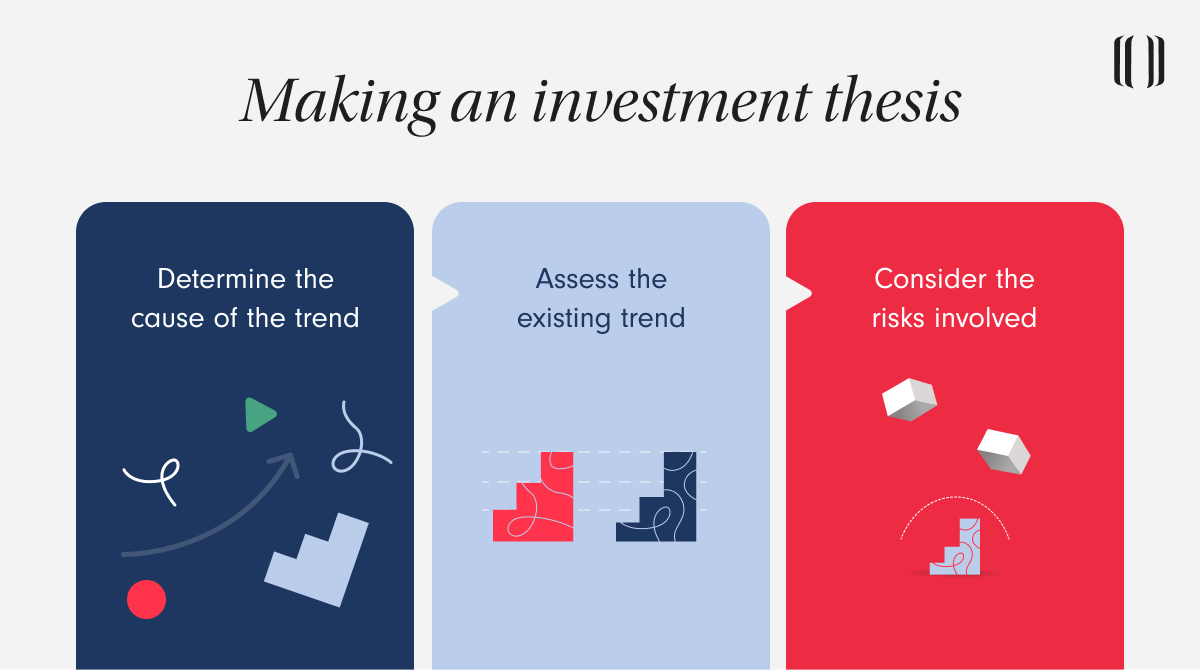Whether you are a start-up founder or a first-time fund manager, learning how to write an investment thesis, can greatly assist you in attracting venture capital. Venture capital is a promising route, it can provide you with access to cash and expert advisors who can assist with day-to-day operations. Furthermore, venture capitalists can help guide you on your journey towards becoming the next big thing. In this article, we will provide you with tips for crafting an investment thesis, and offer insights into fund management and investing.
As a business-friendly region for aspiring fund managers and startups, Singapore is no stranger to venture capital, as evidenced by the total number of Singapore-based startups backed by venture capital reaching S$11.2 billion in the first nine months of 2021, doubling the whole amount raised in 2020. Although the number is predicted to increase in the coming years, it is crucial to remember that venture capital investors are highly selective; they will not invest in a company without thorough due diligence and vetting.
What is an investment thesis?
Would you invest in a business with no vision, guiding principles, or viability? Most likely, you will pass on the idea, no matter how much return is promised. This is why an investment thesis becomes crucial.
An investment thesis is a proposal that venture capitalists and investors make regarding a particular investment or entire asset class before investing in it. The thesis states their belief about why a particular investment will give them a good return in the future. Therefore, meticulous research is required to predict potential growth and determine the current market sentiment. If the thesis remains valid, then the investment should be continued, even in a downturn. Meanwhile, if the thesis turns out to be false, the asset can be sold and the investor can move on.
If you are a startup founder seeking investment, you must check if the goal of your startup is aligned with the investment thesis of the investor even before you pitch to them, so as not to waste time. For example, if your startup is about saving the climate, you should find an investor whose investment thesis is about impact investing. Other examples of investment thesis could be about a positive outlook on crypto or about investing in real estate.
You can get a fundraising consultant to help you with this.
How to make an investment thesis?
An investment thesis is not something that can be done on a whim. It must be well-thought-out. Here are three steps that you should take in creating an investment thesis:

Determine the cause of the trend
In crafting an investment thesis, you should elaborate on the trends that support your view of why this new venture would be a success. For instance, if you want people to back your new fintech venture, you may want to state that in today’s digital age, people are increasingly spending their time online and becoming dependent on mobile devices, including when it comes to their finances. They want everything to be instant and within reach, just by the tap of a finger.
This presents an opportunity for fintech to fill the demand, especially as mobile and internet penetration continues to increase worldwide. This section should support your view on why investing in fintech will pay off down the line. Remember to include market size potential or appetite for the service to bolster your argument.
Moreover, you should assess whether the industry itself has a place in the foreseeable future. As the world becomes more interconnected, it can be said that the probability of digital banking and fintech adoption is relatively high. Such a view was further realised during the pandemic when lockdowns and social distancing measures meant customers needed to find a new way to fulfil their financial needs — ultimately leading to a boom in fintech usage.
Assess the existing trend
After researching the cause of a given trend and market sentiment, it is time to make the case for why investors should back companies that will fit the investment thesis.
For instance, people started to rely on their smartphones, which became all-encompassing devices that answered every need at about the same time that internet penetration seemed to increase every year. It was in this environment that Grab, a booking platform for taxis in Southeast Asia, first started. Since then, they have transformed into the Super App that it is known for today, providing car rides, food, and even grocery shopping and investing services.
Becoming the first in Southeast Asia allowed Grab to establish market share and dominance long before other competitors. While it is true that Gojek was established in 2010, they relied on traditional call centre service for the first few years of operations and just started using an app in 2015. Additionally, they did not expand their Southeast Asia operations until much later, unlike Grab, which expanded to Singapore a year into operations.
This applies to all businesses and startups, not just digital native companies. For example, if you want to open a coffee shop, you must know the potential market in your area and list down the reasons why your coffee shop has potential. Perhaps it is located in a trendy and upcoming neighbourhood surrounded by commercial and residential properties, or you have a Korean-inspired flavour, piggybacking on the buzz surrounding anything Korean nowadays.
By highlighting these differentiating factors in your investment thesis, you effectively showcase why your venture has a competitive edge and the potential to succeed amidst the existing trend. This will attract investor interest and support for your startup.
Consider the risks involved
While starting a business may offer you a fantastic upside, it is still a risky endeavour. Even if you have the experience, starting something new does not always go according to plan. Therefore, it is often said that becoming an entrepreneur is not for the faint of heart. Not everyone has the stomach to ride the ups and downs of establishing a new venture.
You may have grand plans in your head, but executing them into reality is a different ball game. That is why you need to list the possible worst-case scenarios that might occur in your startup and how you will address them to minimise their risk. This will give your investors confidence in your business, meaning that your business is not a flash-in-the-pan startup idea but a well-thought-out one with viability in the future.
Harking back to the fintech example, the risks could be cyber-attacks on the platform or hesitancy to adopt digital platforms, particularly among older generations, which may impact market reach and investment return. Your investment thesis should include ways to deal with such incidents, including hiring and training security experts and regularly holding workshops for seniors in urban and rural areas.
An investment thesis is a written document that explains why you believe investing in a specific asset will yield a good return in the long run. The belief should be backed by comprehensive research and analysis, not driven by a fear of missing out on the current investment trends or following the tips of an influencer. The document will function as a guide or reference to keep your emotions in check on the roller coaster ride of investing.
Lanturn’s Corporate and Fund Administration Services
As one of the leading technology firms that provide end-to-end financial services and solutions for businesses, Lanturn has a proven track record in fulfilling every client’s needs. This includes helping clients navigate their accounting and financing needs. Lanturn has administered over S$200M in fundraising rounds for our clients, from initial seed rounds to Series C.
Lanturn puts technology at the centre of everything we do, embracing the digital world with ease. It is ideal for digitally native companies or those planning to do a comprehensive digital transformation.
Planning your next fundraising round? Read this article and learn how having the right corporate services provider can make fundraising seamless and easy.
For instance, the know-your-customer (KYC) and onboarding process used to rely on emails, PDFs and wet signatures, which took weeks to complete. Lanturn can make fundraising run smoothly because it has built a platform that allows investors to upload key documents with just a few clicks. It features real-time guidance from a Lanturn onboarding specialist who will guide them every step of the way, ensuring a hassle-free and speedy process —ultimately increasing customer satisfaction and experience.
Not yet convinced? Here are 5 Reasons Why Hedge Fund Managers and Investors Should Use Fund Management Software.
Boost your corporate and fund efficiency with Lanturn. Contact us today.


